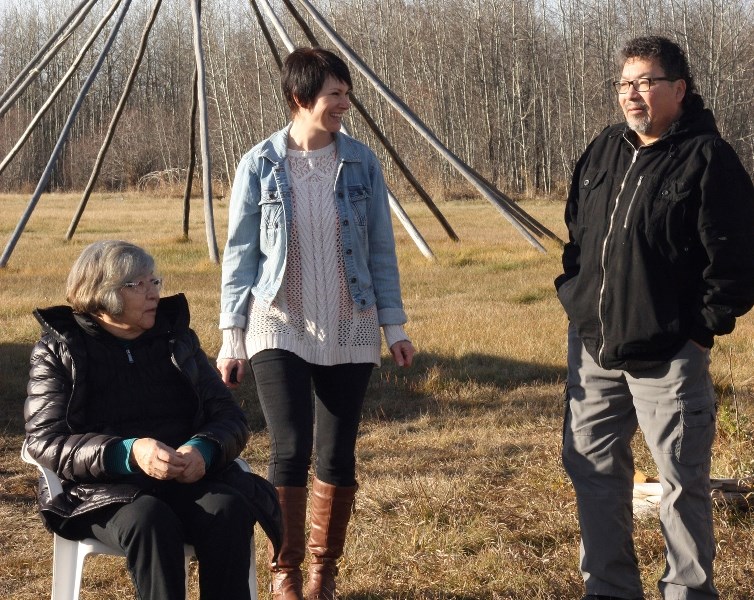While services exist to help those fleeing domestic violence, Rick Makokis is working to curb the problem from within, in connecting men, women and children with their culture and tradition.
“In every community, we have offenders, we have addictions, we have those negative things,” he said, adding that while people can go seek help to resolve these issues, without after-care support, “in most cases, we fall back into that.”
The elder from Saddle Lake has long worked to teach others the importance of culture, of exposing others to First Nations’ rich history of ceremony and traditional practice.
In January of 2015, Noreen Cotton, executive director of the St. Paul & District Crisis Association, asked him what his vision for helping people caught in the cycle of domestic violence.
Makokis told her that it would be to see someone work with men and women, in after-care, helping them to connect to their culture.
A year later, Cotton came back and told him she had a job for him, in family support and men’s support.
“She made my dream, my vision, a reality,” he said.
Makokis notes that working with men who have had problems with violence means revisiting their past childhood trauma, the parts of their past that have caused pain and anger, such as domestic violence in their childhood home.
“It starts to pull your triggers and you go into a rage, and next thing you know, you’re being charged,” he said.
A few of the men who had been mandated to take a men’s group program have chosen to continue on with Makokis in his after-care program; one man, who was formerly deep in addictions, has now recovered and is aiming to work in the oilfield, and currently has custody of his child, whom he cares for with the help of his grandmother. Another who also suffered from addictions now is employed full time, and works in Fort McMurray and Goodfish, doing “exceptionally well,” said Makokis.
Seeing these men turning the corner makes him proud – it’s not about changing the person, he says, but about changing a person’s destructive habits.
On a Thursday morning last week, Makokis was leading a sweat lodge at Blue Quills for youth with Child and Family Services, as well as their support workers.
Eighteen-year-old Colton is from Cold Lake, but said he made the trip out to St. Paul to take part in a sweat for the first time.
“I just never knew my own culture, so I’m willing to experience it,” he said. In his foster care experience, some of his families were more connected to First Nations culture than others, but he remembered that as a child, he saw his mother being connected to her spirituality.
“She seemed at peace with herself, even despite all the problems she had. I’m just trying to find my way like that,” he said.
“I’m building a jigsaw puzzle and I’m trying to fit in the pieces.”
Connecting to culture helps with that process, said Makokis, adding he believes this can be beneficial to everyone.
“It belongs to humanity. I believe the tradition, the culture belongs to humanity,” he said, adding, “It grounds them. Grounding is very important. You need to know where you come from.”



